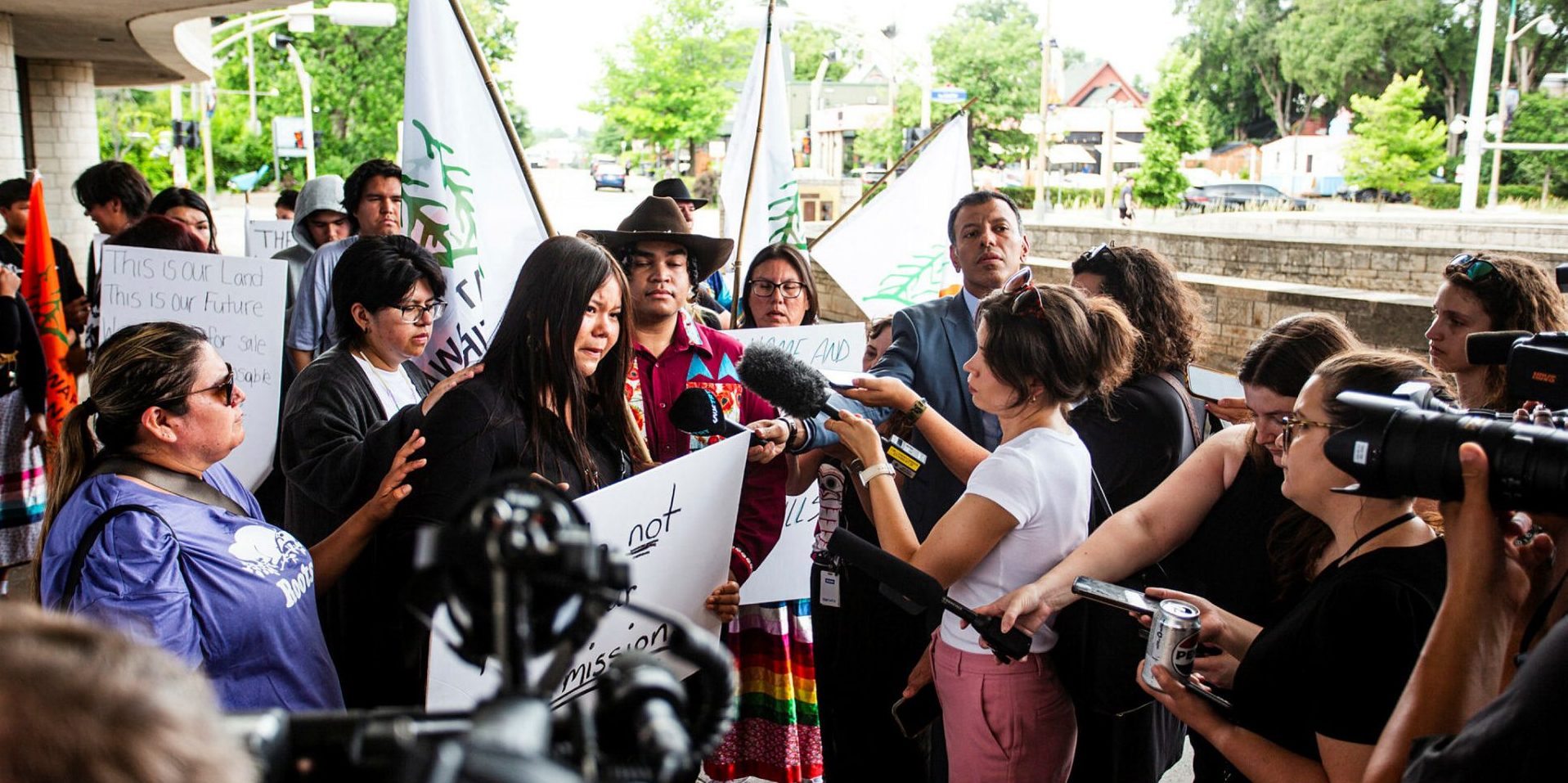Fast-tracking past justice: why the Major Projects Office threatens real reconciliation

As we approach the National Day for Truth and Reconciliation, we must confront an uncomfortable truth: Canada’s new Major Projects Office and its Indigenous Advisory Council represent a dangerous regression in our journey toward reconciliation, not progress.
In the words of Canadian academics Eva Jewell and Ian Mosby: “In the short time we have been annually observing Canada’s record on its supposed progress, we’ve held the tension of the promise of reconciliation with the actual reality, exacerbated by the deep chasm between the two.”
My heart sank reading the Sept. 10 announcement. As an Indigenous adoptee who became a health system leader, and now an Indigenous scholar studying healing spaces, I know first-hand how these structures become vehicles for tokenism. Having chaired numerous advisory bodies during two decades in Ontario’s health system, I’ve witnessed how quickly “advisory” becomes “rubber-stamping” when bureaucracy controls the agenda. These councils, stripped of real decision-making power, legitimize colonial agendas that circumvent legal frameworks Indigenous Peoples fought decades to establish.
The 10 appointed advisers face an impossible task: representing the diverse perspectives of all Indigenous Peoples coast to coast to coast on major projects. As Jewell and Mosby’s Yellowhead Institute analysis reveals, this represents “symbolic” rather than “transformative” reconciliation: performative measures creating the appearance of progress while avoiding necessary structural changes. Their research shows that at the current pace (2.25 calls per year), it will take 38 more years before all Truth and Reconciliation Commission’s (TRC) Calls to Action are complete.
In my role as a “bridge builder” between Indigenous knowledge systems and Western institutions, I recognize the difference between authentic partnership and tokenistic inclusion. The MPO offers none of the TRC’s requirements: sustained institutional commitment, dedicated resources, or respectful engagement with Indigenous knowledge systems.
The pressure to “fast track” projects transparently signals workarounds to avoid legal obligations around Indigenous consultation, placing advisers in an untenable position. I know the weight of being expected to be an expert on everything— from land protection to climate change while simultaneously building bridges with the colonial government whose policies continue harming our communities.
As NDP MP Leah Gazan correctly identifies, this structure appears designed to sidestep genuine consultation with rights and title holders. The Building Canada Act allows cabinet to push through projects deemed in the “national interest” while bypassing environmental protections crucial to Indigenous communities’ well-being. This isn’t reconciliation; it’s recolonization through bureaucratic manoeuvering.
The timing is particularly galling. Ten years after the TRC’s 94 Calls to Action, only 14 have been fully implemented. Health care for Indigenous Peoples remains in crisis. Educational inequities persist. Yet the government fast-tracks major projects that will likely harm Indigenous communities for generations.
The council’s composition reveals critical gaps in place-based representation. Quebec has only two representatives, with no representation from the Kanien’kehá:ka Nation or other Haudenosaunee communities whose traditional territories span proposed project areas. Indigenous health geographies teaches us that meaningful consultation requires representatives who carry specific knowledge of local ecosystems, waterways, and land relationships that vary dramatically across regions. The absence of representatives from specific territories means the absence of irreplaceable place-based knowledge systems.
This geographic imbalance undermines the very foundation of Indigenous governance, which is rooted in specific relationships to particular lands rather than pan-Indigenous generalizations. As political science professor Peter Graefe notes, while high-profile appointments suggest potential influence, “A big question will be: do they really get to play a role in shaping decision-making, or is this just a form of whitewashing, trying to gain consent without really doing much to ensure that consent?”
Real reconciliation demands structural change. The success of Indigenous-led programs like the Queen’s-Weeneebayko Health Education Partnership demonstrates what’s possible when communities shape their own futures.
If Prime Minister Mark Carney’s government genuinely seeks reconciliation, it must commit to meaningful consultation with each affected rights and title holder, grant the Indigenous Advisory Council actual veto-power over projects affecting Indigenous lands, prioritize implementing existing TRC Calls to Action before creating new bureaucratic structures, and ensure Indigenous communities have the resources and authority to make decisions about projects affecting their territories.
As we mark another National Day for Truth and Reconciliation on Sept. 30, we cannot allow the rhetoric of “partnership” to mask continued colonial practices. Through my doctoral research on environmental repossession, how Indigenous Peoples reclaim healing spaces within colonial institutions, I’ve learned that transformation requires fundamental shifts in power, not cosmetic changes.
Indigenous Peoples must have meaningful decision-making authority—not advisory roles—when major projects affect territories and treaty rights. Without these changes, the MPO risks becoming another chapter in Canada’s long history of broken promises. The difference is clear: symbolic gestures maintain colonial power while appearing progressive; transformative change requires settlers to relinquish control and honour Indigenous governance.
As Jewell and Mosby conclude: “With four years of data indicating glacial progress on the Calls to Action and reconciliation generally, it is becoming increasingly clear that transformative change is required.” The MPO, as currently structured, is not that change, it’s more of the same dressed in new language.
Vanessa Ambtman-Smith (Niizhobinesiik) is an assistant professor in the Indigenous studies program and department of geography and environment at Western University, with a PhD in Indigenous health geographies. A former public servant with over 20 years in Ontario’s health-care sector, she brings both academic expertise and frontline experience to health-care transformation.
The Hill Times





 LICENSING
LICENSING PODCAST
PODCAST ALERTS
ALERTS


